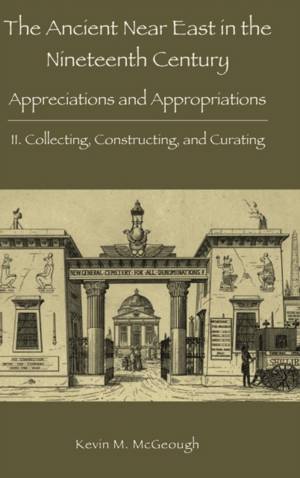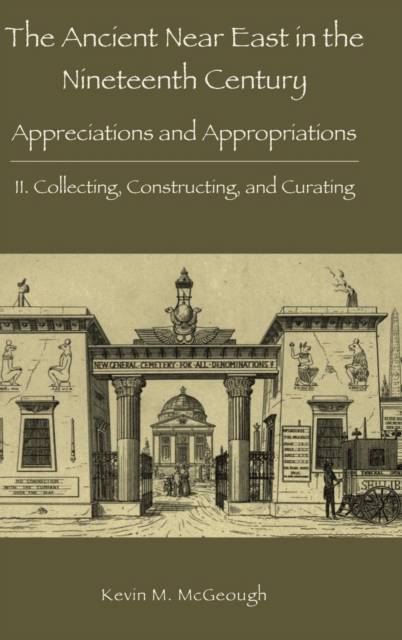
Je cadeautjes zeker op tijd in huis hebben voor de feestdagen? Kom langs in onze winkels en vind het perfecte geschenk!
- Afhalen na 1 uur in een winkel met voorraad
- Gratis thuislevering in België vanaf € 30
- Ruim aanbod met 7 miljoen producten
Je cadeautjes zeker op tijd in huis hebben voor de feestdagen? Kom langs in onze winkels en vind het perfecte geschenk!
- Afhalen na 1 uur in een winkel met voorraad
- Gratis thuislevering in België vanaf € 30
- Ruim aanbod met 7 miljoen producten
Zoeken
The Ancient Near East in the Nineteenth Century
Appreciations and Appropriations. II. Collecting, Constructing, and Curating
Kevin M McGeough
Hardcover | Engels
€ 128,95
+ 257 punten
Uitvoering
Omschrijving
At the beginning of the nineteenth century, little was known of the ancient Near East except for what was preserved in the Bi¬ble and classical literature. By the end of the nineteenth cen¬tury, an amazing transformation had occurred: the basic out¬line of ancient Near Eastern history was understood and the mate¬rial culture of the region was recognizable to the general pub¬lic. This three-volume study explores the various ways that non-specialists would have encountered ancient Egypt, Mesopota¬mia, and the Holy Land and how they derived and con¬structed meaning from those discoveries. McGeough chal¬lenges the simplistic view that the experience of the ancient Near East was solely a matter of 'othering' and shows how differ¬ent people claimed the Near East as their own space and how connections were drawn between the ancient and contempo¬rary worlds. Volume II examines the different ways that non-specialists encoun¬tered the materiality of the ancient Near East over the course of the nineteenth century. During this time, people col¬lected artifacts while traveling in the region or paid to see the col¬lections that others brought back. The public experienced the ancient world in museum exhibits that privileged 'real' arti¬facts in a new context or in hyper-real displays (like the Crystal Palace) where whole buildings from the ancient Near East were reconstructed. Men and women dressed as biblical charac-ters in travelling fairs or spent an evening unwrapping a mummy. Individuals bought Assyriological souvenirs and em¬ployed Egyptian styles in their design, first in higher quality de¬signer products and later in novelty items. Egyptian temples pro¬vided the architectural inspiration for buildings in London and the ancient use of colour was a strong argument for reimagin¬ing Victorian style. The adoption of Egypt, especially, in the world's-fair phenomenon linked the ancient Near East with a global future in which change was naturalized and consum¬ers were taught not to be afraid of the transformations brought by the industrial age.
Specificaties
Betrokkenen
- Auteur(s):
- Uitgeverij:
Inhoud
- Aantal bladzijden:
- 450
- Taal:
- Engels
Eigenschappen
- Productcode (EAN):
- 9781909697669
- Verschijningsdatum:
- 18/05/2015
- Uitvoering:
- Hardcover
- Formaat:
- Genaaid
- Afmetingen:
- 156 mm x 234 mm
- Gewicht:
- 802 g

Alleen bij Standaard Boekhandel
+ 257 punten op je klantenkaart van Standaard Boekhandel
Beoordelingen
We publiceren alleen reviews die voldoen aan de voorwaarden voor reviews. Bekijk onze voorwaarden voor reviews.









